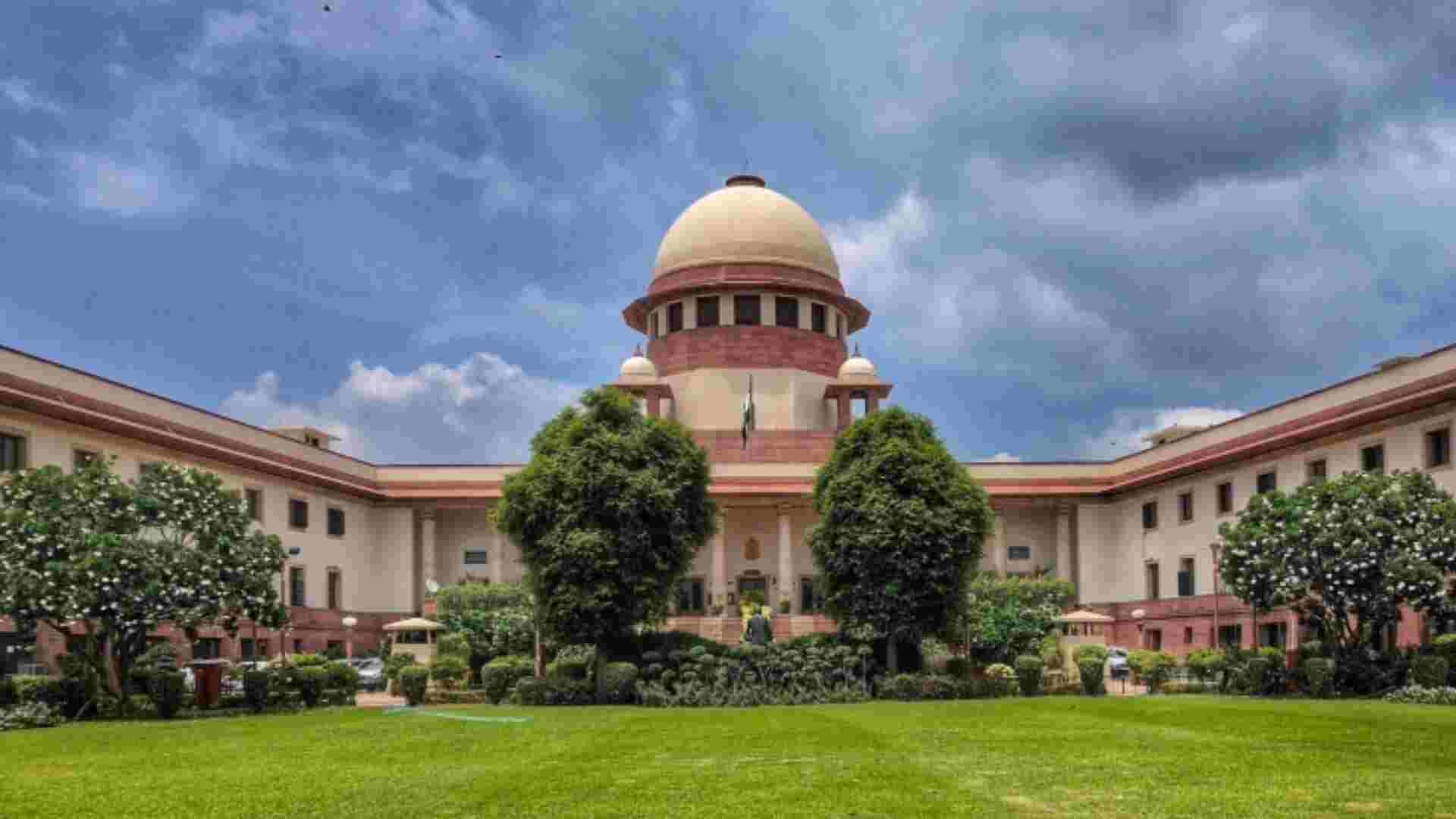Law has consistently been taken a gander at as one of the significant instruments that could achieve social change. Numerous academicians have upheld the view that law appreciates and utilizes binding together capacity to contribute towards better social union, as a device for achieving homogeneity in the heterogeneous populace having socio-social assorted varieties. Despite the fact that there are a few gadgets to achieve a change and renewal in the public arena, however reconstruction through law is maybe one of the best and most secure strategies to accomplish this end. Indian society has transformed over the period of time from a society governed by Smrithi, Sruti, Dharma and other customary law, to western conceptions of law and authority during the colonial period. Further with the rights-based Constitution and dynamic law-production which incorporates the codification of strict laws and governmental policy regarding minorities in society during the post-pioneer period, the Indian culture has gone through change. The commitment of sociological statute to the social change in India, could be all around surveyed as perceived by seeing the law as a device of social designing. Significance allocated to sociological school of law, is because of the way that by glancing through the focal point of this specific way of thinking, the reaction of human conduct in a general public to law and how law has made and shaped itself to suit the manner in which the general public reacts to it could be perceived .There additionally could be cases we could watch, by which we could see even the general public now and again requests for laws. this interaction of law and society contributes and prompts advancement of one another. Looking from the sociological school of statute during the hour of pilgrim organization in India, social change had clearly occurred, yet the circumstance that existed in which the laws were forced by the provincial organization, gives an impression of a circumstance for the positivist law to exist. English organization can’t be said to have seen law as social building device for the Indian culture. Further, to a great extent there was no reference to the need of the individuals in the law-production during pilgrim times. The provincial arrangement of law-production can’t be outlined into agreement or strife model, as the individuals’ investment, keen or need was not of much worry for the law-production around then. Be that as it may, precluding all the law made during pilgrim organization out of ambit of sociological statute is likewise impractical. English organization was more keen on shaping laws that will help in framing a dish India level system for the administration of the nation. In any case, because of the general assessment likewise certain laws were established matters such as sati and child marriage abolishment legislations. This indicates that the need of people, reflected in the public opinion also had an impact on the legislations even during the colonial period . Post-Colonial Period Post-frontier period saw critical measure of law-production that affected quite a bit of social change in India. This began with the confining of Indian Constitution, a report which could be alluded to as socio-political and right-situated in approach. The Constitution has really planted the seeds of a moderate social upheaval that had set off numerous dynamic and purposive law-production. The Constitution by joining arrangements that gets governmental policy regarding minorities in society, advances multiculturalism and proportions of a commitment upon the States prompting a government assistance instrument is an exemplification of a law made inside the system of sociological statute. Despite the fact that the Constituent Assembly was not a chosen body, the perspectives and issues that were examined and further got reflected in the Constitution, had unquestionably the goals of the individuals and thought about the different parts of enthusiasm of the Indian culture. Further, we could infer that the Constitution of India that purposive law-production for driving India into a moderate social insurgency, and over the timeframe Constitution has formed its shape with the changing need of the country.
PIONEERS OF THE SOCIOLOGICAL SCHOOL
There are various pioneers of the this school namely Auguste Comte, Herbet Spencer, Dugit , Eugen Ehrlich , Ihering , Haurio and one the important pioneer is Roscue Pound . It is to be stated that howsoever divergent the views of various sociological jurists may appear, they have one common point that the law must be studied in relation to society This view has a great impact on modern legal thought.
THEORIES OF VARIOUS PIONEERS OF SOCIOLOGICAL SCHOOL AND THEIR IMPACT/CONTRIBUTION ON THE PRESENT LEGAL SYSTEM
1 . Duguit
Durkheim’s main point, on which Duguit built upon, was that he made a distinction between two kinds of needs of in society. Firstly, there are common needs of individuals which are satisfied by mutual assistance and secondly , there are diverse needs of individuals which are satisfied by exchange of services. Therefore , the division of labour is the most important fact of social cohesion. He named it ‘social solidarity’ . With development of free individual activities the ‘social solidarity’ develops . The ‘social solidarity’ is a fact and it is necessary for social life. His theory impacted in way which causes minimisation of state functions . The social solidarity is the touchstone of judging the activities of individuals and all organisations . State is also a human organisation and it is in no way different from other organisations. It is simply the expression of the will of the individuals to govern . They too are under a duty to ensure ‘social solidarity’ . Therefore , the state stands in no special position of privilege and it can be justified only so long as it fulfils its duty . Duguit has a no faith in an all powerful illimitable authority ‘sovereign’ . He strongly pleads for the check on the state power . Thus in the present legal system three organs keep the check on eachother as there is no bias decision and nothing goes wrong and the work goes on smoothly thus a system of check and balances is established .According to him legislator does not create law but merely gives expression to judicial norm formed by the consciousness of the social group .
2. Ihering
According to him, the development of law like its origin is neither spontaneous nor peaceful. “It is the result of constant struggle or conflict with a view to attain peace and order.” Ihering says, “Law is the guarantee of the conditions of life of society, assured by the state’s power of constraint. LAW IS TO SERVE SOCIAL PURPOSE- He takes law as a mean to an end. The end of the law is to serve purpose. This purpose is not individual but social purpose. When individual purpose comes in conflict with social purpose, the duty of the state is to protect and further social purposes and to suppress those individual purposes which clash with it. This end may be served either by regard or by coercion and it is the latter which is used by the state. Therefore, “law is coercion organised in a set form by the state’. As to its impact on the present legal system, he says that law is the only means to control the social mechanism, or it alone can protect and further all the social purposes. Law is the only one factor among many others. There are some conditions of social life, such as climate, etc. for which only part-intervention is made by law. Lastly, there are some conditions of social life which are secured exclusively by the law, such as raising of revenue. In short, according to Ihering, the purpose of law in the present legal system is to secure the conditions of social life by the state through coercion. Law always has a purpose. the purpose is to further and social interests.
3. Eugen
Ehrlich Law is to be found in social facts- the central point in Ehrlich’s thesis is that the law of a community is to be found in social facts and not in formal sources of law. He says: “At present as well as at any other time, the centre of gravity of legal development lies not in legislation, nor in juristic science, nor in judicial decision, but in society itself.” ‘Living law’ is the fact that governs social life- the norms which, in fact, govern social life are only partly reflected in the formal law (i.e., statute of judge-made law) of that society. the essential body of legal rules is always based upon the social facts of law. The ‘fact of law’ which underlie all law are usage, domination, possession and declaration of will. These facts regulate the social relations and make the ‘living law of the people’, state-made law (statutes and decisions) is only a part of this great body of law. Generally, these legal norms lag behind the ‘living law’. In the present legal system, his point is used as the law is made according to the requirements of the society. His use of the term ‘sociological jurisprudence’ means that the law in
society should be made and administered with the utmost regard to its requirements. To achieve this end, a very close study of social conditions of the society, in which the law is to function is, indispensible. Also, as we see today, law is made considering the needs of the society and their interest is protected. Thus, what he wants in the legal system is social justice. by ‘justice’ he does not mean some absolute principle, but a relative justice changing with time and place. 4. Roscoe Pound For Pound, the law is an ordering of conduct so as to make the goods of existence and the means of satisfying claims go round as far as possible with the least friction and waste. According to him, the end of law should be to satisfy a maximum of wants with a minimum of friction. The task of law is ‘social engineering’- Pound’s main thesis is that the task of the law is ‘ social engineering. He says- “For the purpose of understanding the law of today, I am content with a picture of satisfying as much of the whole body of human wants as we may with the least sacrifice. I am content to think of law as a social institution to satisfy social wants, the claims and the demands involved in the existence of civilised society- by giving effect to as much as we may with the least sacrifice, so far as such wants may be satisfied or such claims given effect to by an ordering of human conduct through politically organized society. For the present purpose I am content to see in legal history the record of a continually wider recognising and satisfying of human wants or claims or desires through social control; a more embracing and more complete and effective securing of social interests; a continually more complete and effective elimination of waste and precluding of friction in human enjoyment of the goods of existence- in short, a continually more efficacious social engineering”. The present legal system consists of the concept of social engineering laid down by Pound as social engineering consists of study of actual social effects of legal institutions and legal doctrines, study the means of making the legal rules effective, sociological study in preparation of law making, study of judicial method, a sociological legal history and the importance of reasonable and just solutions of individual cases. As social engineering consists of three heads under it: private, public and social interests, the present legal system safeguards the three interests as follows: The private interests to be protected by the law are: a) the individual’s interests of personality: These include his physical integrity, reputation, freedom of volition and freedom of conscience. They are safeguarded by the criminal law, law of tort, law of contracts and by limitation upon the power of government to interfere in the matter of belief and opinion, b) Individual’s interests in domestic relations: these include marriage, relations of husband and wife, parents and children, and claims to maintenance, c) Interests of substance: these include proprietary rights, inheritance and testamentary succession, and occupational freedom. the principal public interests are: a) interests in the preservation of the state as such, and b) interests of the state as the guardian of social interests. The social interests deserving legal protection are: a) interests in the preservation of peace and order and maintaining general security, b) interest in preserving social institutions like marriage and religious institutions, c) interest in preserving general morals by counteracting corruption, discouraging gambling and invalidating transactions repugnant to current morality, d) interests in conserving social resources, e) interest in general progress which is to be achieved by freedom of education, freedom of speech and expression, freedom of property, trade, and of commerce, and f) interest in the promotion of human personality.
THE RELEVANCE OF THE THEORIES OF THE SOCIOLOGICAL SCHOOL IN PRESENT LEGAL SYSTEM:
EFFECT OF LAW AND SOCIETY ON EACH OTHER
The above all else effect of the sociological school on present lawful framework is that law is made considering the requirements of the general public as all the pioneers of the school in their hypotheses have one or in the other manner said something very similar that there is no law without society as though the law is made without considering the general public or it doesn’t satisfy the necessities of the general public and can’t keep up the enthusiasm of the general public then it can’t be viewed as law . so both law and society are identified with one another.
RELATIONS BETWEEN INDIVIDUAL, STATE AND SOCIETY HAVE BEEN CHANGING
Relations between individual, state and society have been continually changing and different hypotheses with respect to it have been given every now and then. In the first place, society was administered by customs which had just social authorization. At that point there came the matchless quality of ministers. A short time later the mainstream state developed groundbreaking and it ruled all foundations. As a response the significance of individual was stated by scholars and logicians. There were unrests and political changes. Presently, the need of adjusting the government assistance of the general public and the individual was figured it out. At that point there came an inclination of socialization and an engineered approach was given. The significance of individual for the general public and of the last for the previous was underlined.
IN THE MODERN TIMES TENDENCY OF SOCIALIZATION
At that point came the view that one ought to be considered in the light of the other. The methodologies produced using this perspective are called sociological methodologies. The reasons which achieved this sort of approach are many. The chronicled school, the philosophical development and the relative investigation of legitimate framework all in various manners contributed in achieving this new technique.
BACKGROUND OF THE NEW THOUGHT
The changed political way of thinking, new hypotheses of science, Industrial upset, new monetary idea and ground-breaking thoughts in other sociology in the nineteenth century had their impact on the legitimate idea. The French and German masterminds established the frameworks of the thoughts of socialism and communism which gave a new understanding on the reason for law. The hypothesis of natural advancement gave the possibility of natural improvement which was applied on law too. Along these lines, there occurred a progressive change in the idea of law . In the advanced occasions, social relations are developing increasingly mind boggling. The idea of state and its connection with people have gone through an extraordinary change. New understandings are being given to these progressions yet remembering the fundamental effect of sociological school that is connection among law and society.
CONCLUSION
On the basis of the development of social values and common rules of behavior we may distinguish three types in the sociological approach to law:
1) the classical sociological approach, which is characteristic of traditional society;
2) the modern sociological approach, which is characteristic of industrial society;
3) the post-modern sociological methodology, which depends on expanding singular government assistance. The sociological methodology is basically reasonable and communicates the connection between society a well as its people and gatherings with law. The traditional sociological way to deal with law rises as the legitimate request of the state is slowly supplanted by the lawful request dependent on customs.
The development of the modern sociological approach to law can be divided into two stages:
1) The phase of building up a majority rules system, where request is set up by methods for laws and progressive enactment. Citizenry are relied upon to willfully comply with the lawful request of the state. Along these lines enactment depends on expanding information about the truth of law. Information on “lawful authenticity” is a boost for the humanism of statute and the improvement of the social science of law.
2) The phase of utilizing present day law as an instrument of making the cutting-edge state. During the time spent advantageous interaction among popular government and present-day political idea law has made the thought of law as an instrument of social change. This idea has assembled two factors – the developing intensity of the cutting-edge state and social change. Current law is viewed as just an instrument of the state’s political force and its effectiveness is controlled by the grouping of political powers, autonomously from the help of different frameworks of social guideline. Investigating the sociological way to deal with law has lost its pertinence. This explains the negative consequences of society’s legal culture:
1) the unconditional endorsing of the instrumental approach to law;
2) the weakening of the link between society and law. The weakening of the link between society and law is particularly hazardous because individuals’ voluntary obedience to the rule of law gives basis for the existence of society as such.
It is to be expressed that howsoever unique the perspectives on different sociological legal scholars may show up, they have one basic point that the law must be concentrated according to society. This view greatly affects present day legitimate idea but it ought not be interpreted as meaning that different strategies have totally stopped to exist.























